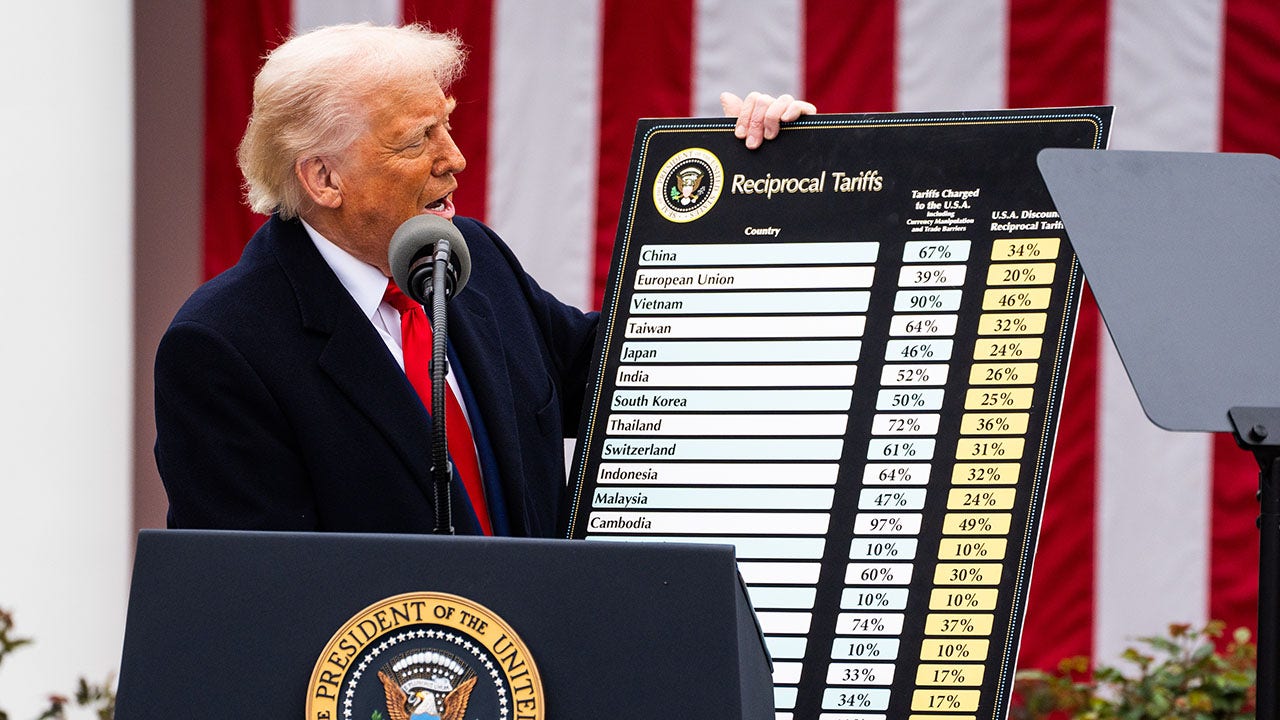Here’s a closer look at Trump’s tariff plan: What to know about the new duties

President Donald Trump made a bold move on what his administration dubbed as “Liberation Day” by announcing a series of new tariffs on imports to the U.S. During a ceremony at the White House’s Rose Garden for a “Make America Wealthy Again” event, Trump outlined his plans to impose tariffs on countries that he believes have been treating the U.S. unfairly.
The new tariff plan includes a baseline duty of 10% on all imports to the U.S., with customized tariffs set for countries that have higher tariffs on American goods. These tariffs are set to take effect on different dates, with the baseline tariffs starting on Saturday and the others on April 9.
Countries targeted by the new tariffs include China, the European Union, South Korea, India, Vietnam, and others. The Trump administration has also imposed tariffs on auto vehicles, goods from Mexico and Canada, and existing duties on China. The White House emphasized that tariffs on Canada and Mexico remain unchanged.
Trump justified the tariffs by accusing other countries of engaging in unfair trade practices and argued that imposing tariffs will help bring manufacturing jobs back to the U.S. The administration aims to address the nation’s record $1.2 trillion trade deficit through these measures.
The announcement of the new tariffs sparked backlash from members of Congress, with some warning that they could raise prices for American consumers. The Senate approved a resolution to rescind the emergency declaration on fentanyl trafficking used by Trump to justify duties on Canada. However, the resolution faces challenges in the Republican-controlled House.
Other countries, including allies like Canada and Australia, have criticized the new tariffs. Canadian Prime Minister Mark Carney expressed concern about the negative impact on the U.S. economy, while Australian Prime Minister Anthony Albanese described the tariffs as unfriendly actions.
Despite the criticism, Secretary of the Treasury Scott Bessent warned against retaliating against the U.S., stating that there would be further action if other countries escalate the situation. The Trump administration remains firm in its stance on tariffs as a means to protect American interests in international trade.
In conclusion, Trump’s announcement of new tariffs marks a significant shift in U.S. trade policy, with implications for both domestic and international economies. The impact of these tariffs on various industries and consumers remains to be seen as the administration moves forward with its trade agenda.




